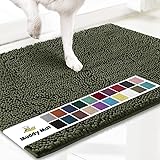A new approach could improve risk management decisions around Shiga toxin-producing E. coli (STEC), according to a study.
Risk classification and management of STEC isolated from food has been hampered by gaps in knowledge about how different types can cause severe disease.
In 2019, a joint FAO/WHO Expert Meeting on Microbiological Risk Assessment (JEMRA) proposed the pathogenic potential of a STEC strain is categorized based on virulence genes. JEMRA presented a ranking of strains with various virulence genes into five levels based on their potential to cause diarrhea, bloody diarrhea and hemolytic uremic syndrome (HUS).
In 2020, the European Food Safety Authority (EFSA) said STEC serogroup cannot be used as a predictor of clinical outcome. EFSA also concluded that any STEC types can be associated with severe illness, but strains with the gene for producing the toxin subtype Stx2a showed the highest rates of HUS, hospitalization and bloody diarrhea, and presence of the eae gene is not essential but was an aggravating factor.
Improving reaction to STEC findings
The new approach combines estimated probability of the strain to cause severe illness with the public health burden associated with sickness in terms of disability adjusted life years (DALY) per case, according to the study published in the journal Microbial Risk Analysis.
STEC strains isolated from food or human HUS cases, characterized in terms of the stx- and eae-genes present, and for which clinical data were reported in the EFSA dataset were used to illustrate the approach.
Researchers evaluated this method by ranking and classification of STEC food strains collected during surveys and one outbreak in Sweden.
From a risk management perspective, setting the limit between a satisfactory or not result of a food sample, is a trade-off between the potential health impact and the cost of declaring the result unsatisfactory, according to the study.
A cost-benefit analysis was done using the proportion of food samples classed as satisfactory or not based on the cost in terms of proportion of food being rejected and the benefit in terms of the proportion of strains causing severe illness that are captured.
A limit of 500 mDALY, targeting genotypes stx2a+eae+other stx genes, would lead to 14 percent or less of food samples being considered unsatisfactory and about 85 percent of STEC strains having caused HUS in Sweden would be captured.
The method is risk-based in terms of the probability and consequences of severe illness following infection.
“It is not risk-based in terms of the risk associated with the presence of a STEC genotype in the food since this would involve genotype specific risk assessments considering exposure which would involve more work and data that are not always available,” said researchers.
E. coli in imported meat
Another study has looked at E. coli O157 in samples of imported raw meat from the ports of Saudi Arabia. Products from India and Brazil were the most frequently contaminated.
According to the Saudi Food and Drug Authority, in 2017, at least 562, 280, and 50 samples of beef, chicken and sheep meat, were tested for E. coli O157:H7, said the study published in the journal Scientific Reports.
E. coli O157 was detected in 29 of 428 beef samples imported from India, two of 91 from Brazil and one of 15 from the UAE. It was found in 16 of 230 chicken samples from Brazil and one of 28 from Ukraine. The pathogen was also detected in one of 47 sheep meat samples from India. Positive products came from several different companies.
In Saudi Arabia, no E. coli O157:H7 outbreak has been reported to date, and prevalence is unknown. However, it has been isolated from several local cattle farms.
“The presence of E. coli O157:H7 in samples of imported raw meat highlights the need for more regular surveillance at the borders of Saudi Arabia before the products are made available on the market for consumption by the public. Our results underscore the necessity of more stringent control protocols for the approval of imported food products, particularly from India and Brazil, which are the major suppliers of meat to Saudi Arabia,” said researchers.
(To sign up for a free subscription to Food Safety News,click here.)
Note: This article have been indexed to our site. We do not claim legitimacy, ownership or copyright of any of the content above. To see the article at original source Click Here













